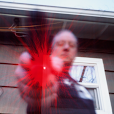- Ralph Waldo Emerson
We live in a time of abundance. Food, Metabolic energy, is cheap and plentiful. Indeed, many of the patients I see suffer from the side effects of abundance. Obesity, diabetes, alcoholism are all symptoms of too much, too good. It's easy to meet your caloric needs, and not much harder to exceed them, and just as easy to indulge in some recreational chemistry.
Life used to be much harder, and humans earned every calorie they cons
 umed, whether it came from food grown from seed, or meat brought to the hearth after days of following the herd. Killing a mammoth, bringing in the harvest, warranted a feast, and the revelers would gorge on the bounty that they had wrought. I've heard that there is a "feast or famine" gene still lurking in our chromosomes. Refrigeration is a relatively new process, and it's been suggested that over-eating, over-spending, and over-indulging are related genetically-programmed behaviors, left over from the not-so-distant past, when meat would spoil if not consumed quickly.
umed, whether it came from food grown from seed, or meat brought to the hearth after days of following the herd. Killing a mammoth, bringing in the harvest, warranted a feast, and the revelers would gorge on the bounty that they had wrought. I've heard that there is a "feast or famine" gene still lurking in our chromosomes. Refrigeration is a relatively new process, and it's been suggested that over-eating, over-spending, and over-indulging are related genetically-programmed behaviors, left over from the not-so-distant past, when meat would spoil if not consumed quickly.Consider the peanut butter and jelly sandwich. Assuming you aren't eating them daily out of economic necessity, it's a pretty good snack or lunch item. At worst, the PB&J is a sweet and gummy collection of tasteless and humble staples, but, when prepared with high-quality ingredients, it can achieve gourmet magnificence .
One of my favorite lunches, dating from my middle school, 4-H Club days, is a double-decker PB&J (three slices bread, the peanut butter and jam separated by the third slice of bread) and a can of V-8 juice. The sandwich is transformed by the extra bread and the segregation of ingredients. The V-8 juice forms a backdrop, a canvas, against which the elemental notes of peanut, strawberry, and wheat bread are rendered in a gustatory still life. Approaching fine French pastry, it has the supreme balance of taste, texture, that satisfies some fundamental, psycho-emotional need for sugar, fat, and salt.
Made with whole wheat bread, costing only pennies, half of a peanut butter and jelly sandwich compares almost identically with a Clif bar, at $1.49. Maybe it's a little messier, and won't suffer weeks, or months, in your backpack, but a PB&J is definitely cheaper, easier, and handy. Properly assembled, it contains that balance of carbohydrates, fats, protein, and fiber for which people, athletes, spend a fortune, every year, on energy bars, hoping to find that perfectly-formulated, pre-made, pre-packaged product that will sustain them in the course of their daily adventures.
 I offer the humble peanut butter and jelly sandwich as a metaphor for the modern diet. I fully believe that the PB&J, two thousand years ago, might have spawned bloody wars of conquest, bent on acquiring the fabled sandwich. Today, it is a tried and true lunch box staple, but way back then it would have been an unheard-of delicacy, in an age without refined sugar, leavened bread, and the necessary mechanization to mill peanut butter.
I offer the humble peanut butter and jelly sandwich as a metaphor for the modern diet. I fully believe that the PB&J, two thousand years ago, might have spawned bloody wars of conquest, bent on acquiring the fabled sandwich. Today, it is a tried and true lunch box staple, but way back then it would have been an unheard-of delicacy, in an age without refined sugar, leavened bread, and the necessary mechanization to mill peanut butter.This Thanksgiving, please take a moment to acknowledge the unknown, the unsung, the unappreciated men and women who came before you. The person who invented the buffalo fall, the person that first added spices to roasting meat, the one who built a boat capable of carrying passengers to a new life in a new world. The inventor of peanut butter, Dr. Salk, Thomas Edison, Robert Ranson (inventor of the cast iron plowshare) also deserve our gratitude. And don't forget the people who, today, this day, make your life possible: the garbage man, long haul truckers, oil field wild-catters, police and fire.
And when the turkey's all gone, make a peanut butter and jelly sandwich and wallow in the gifts of civilization.
“There is something even more valuable to civilization than wisdom, and that is character”
-Henry Louis Mencken
“A nation or civilization that continues to produce soft-minded men purchases its own spiritual death on an installment plan.”
-Martin Luther King, Jr
“To be able to fill leisure intelligently is the last product of civilization, and at present very few people have reached this level.”
-Bertrand Russell









